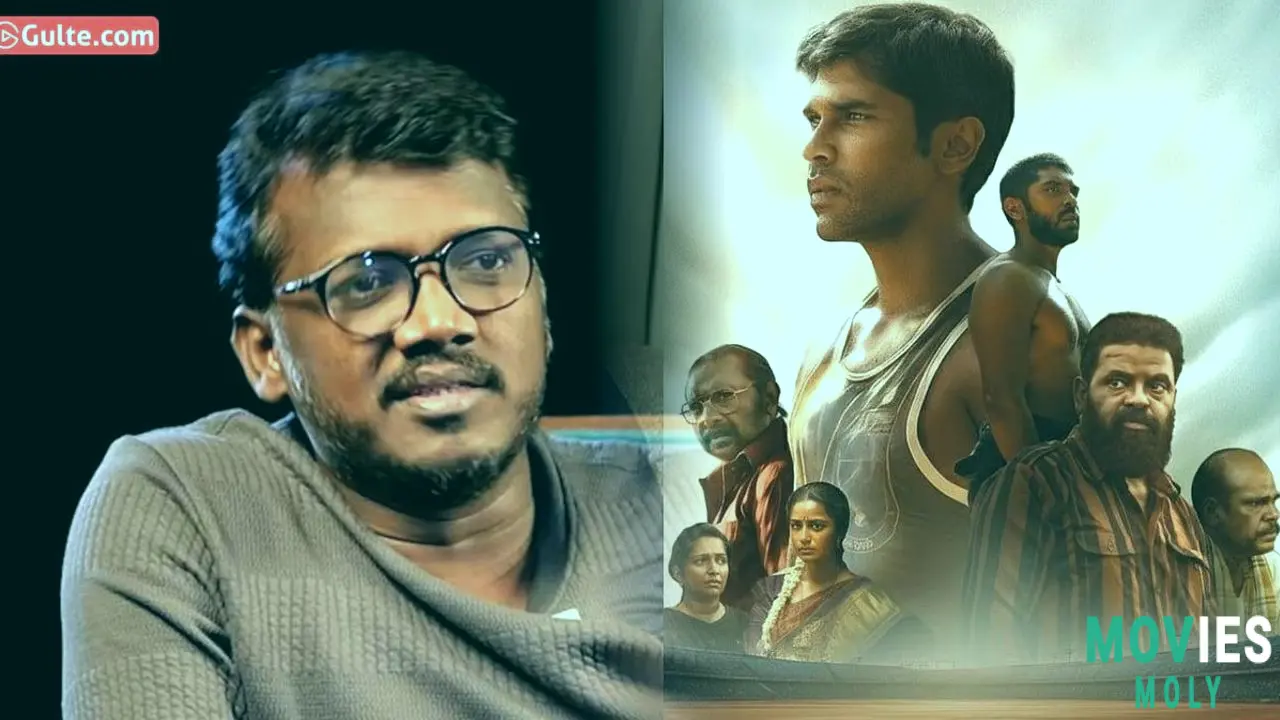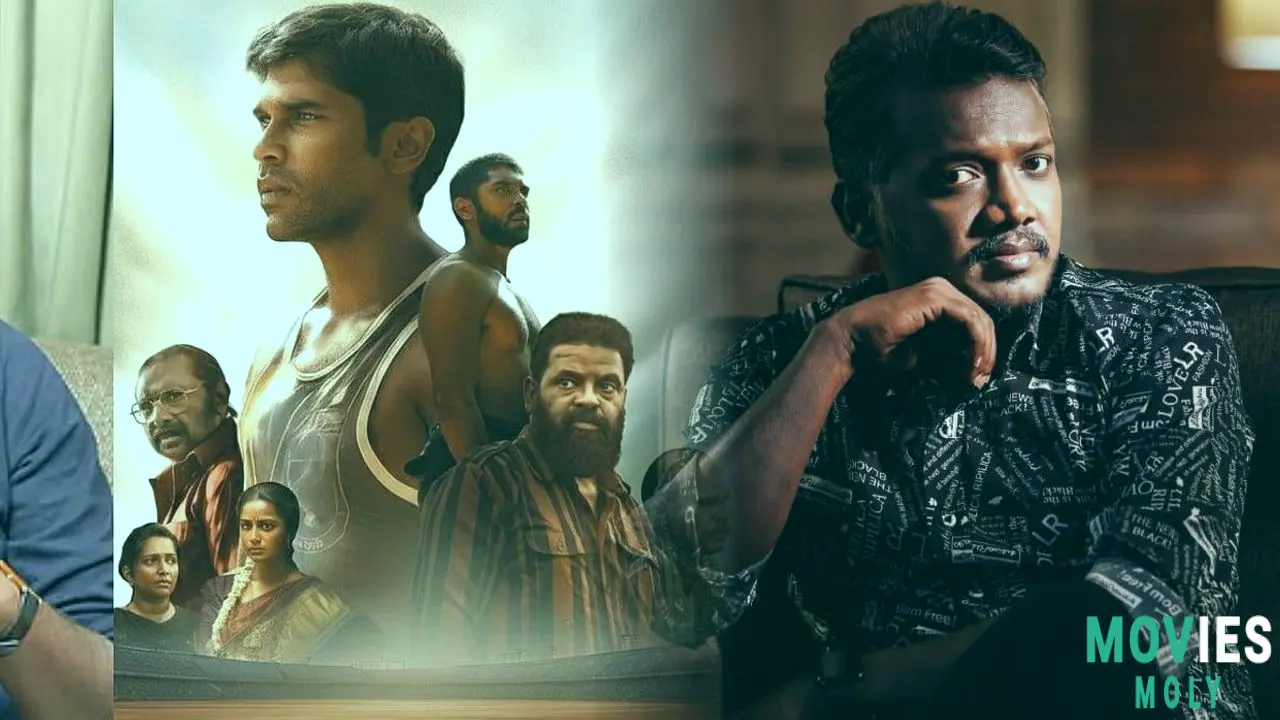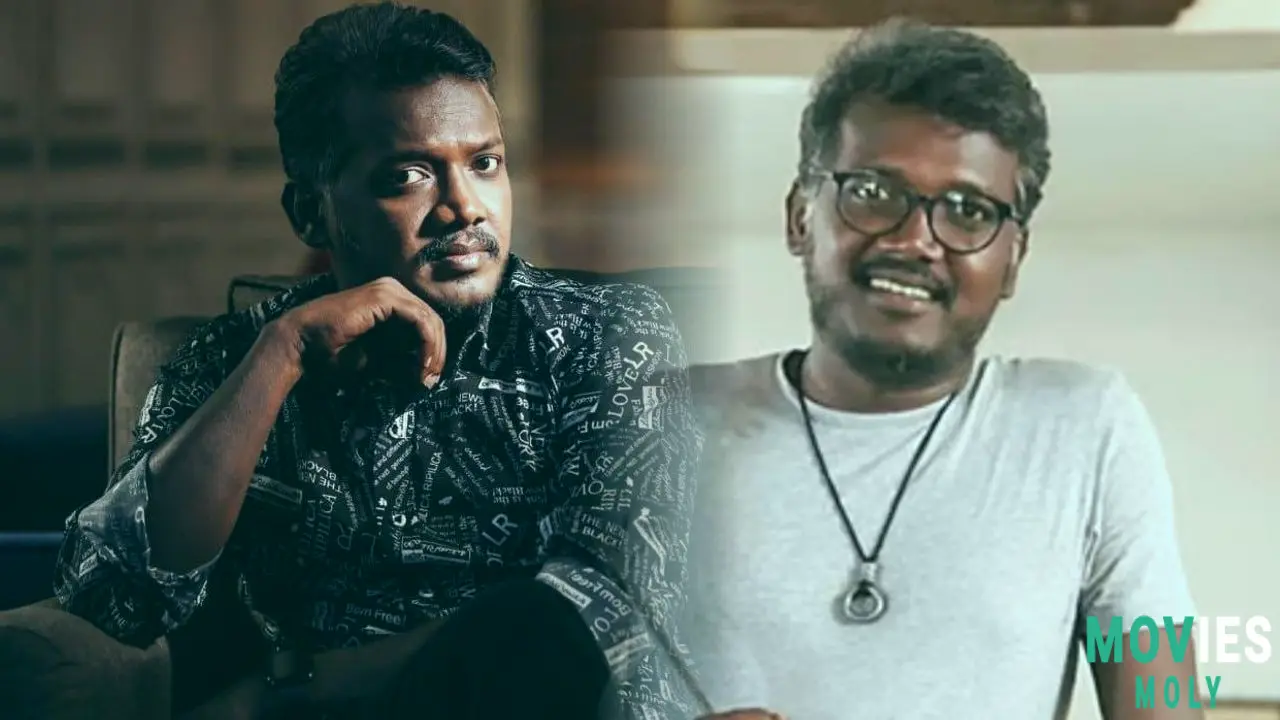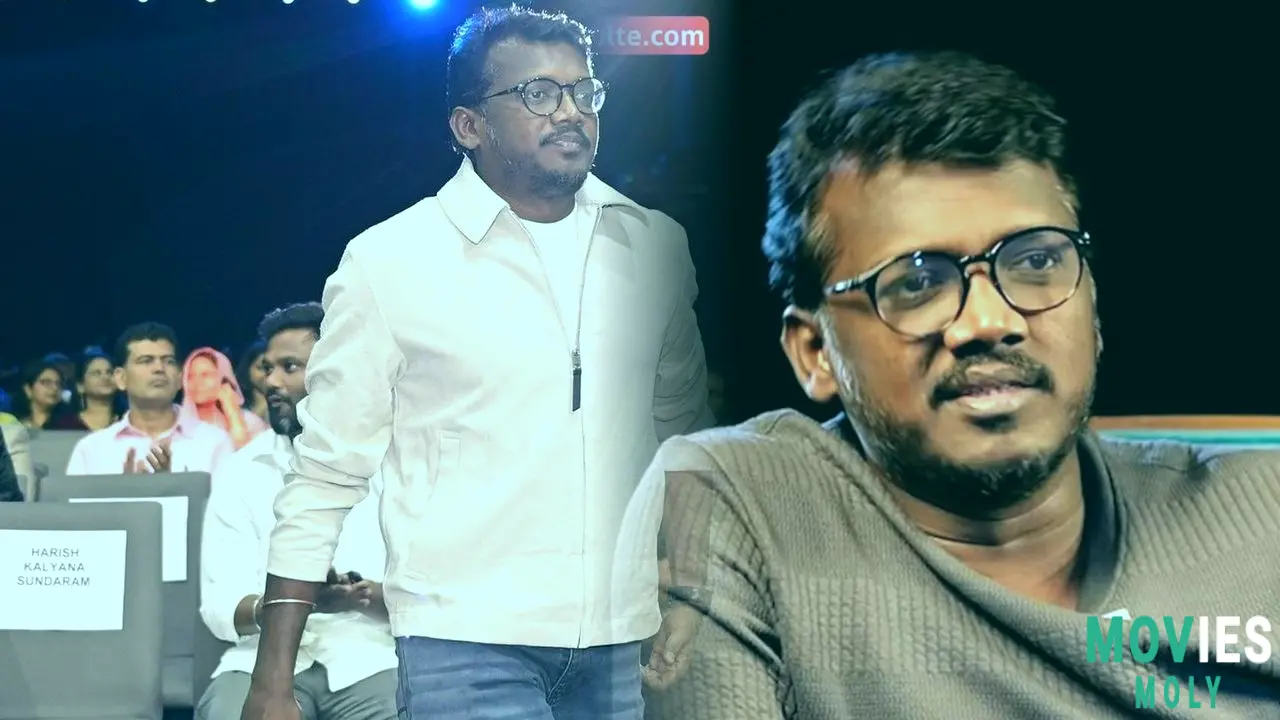Fresh off the success of 'Bison,' acclaimed director Mari Selvaraj is making headlines not just for his film's performance but for his passionate and emotional stand on continuing to craft socially impactful stories.
TL;DR- Director Mari Selvaraj passionately defended his focus on 'anti-caste' films, urging critics to "leave him alone" to make cinema that educates and sparks conversation.
- His latest film, 'Bison,' starring Dhruv Vikram, has been a commercial success, grossing over Rs 30 crore in India and receiving positive audience feedback since its October 17, 2025, Tamil release.
- Selvaraj also addressed ongoing criticisms about his casting choices, emphasizing that performance and character justification are his top priorities, not skin tone or regional origin.
Bison Charges Ahead: Mari Selvaraj's Latest Film a Success Story

Tamil cinema has been buzzing recently, and a huge part of that conversation centers around director Mari Selvaraj and his latest release, Bison. Starring Dhruv Vikram in the lead, this sports drama with a powerful societal theme hit screens in Tamil on October 17, 2025, just in time for Diwali. The Telugu version followed a week later, on October 24, after holding back from the competitive Diwali window.
From day one, Bison has been raking in positive word of mouth. We're talking full houses in several theaters and decent occupancy for its Telugu debut. The film isn't just a critical darling either; it's a commercial success! Over just nine days, Bison impressively collected more than Rs 30 crore in India, easily surpassing its budget and cementing itself as a solid hit.
The film tells the compelling story of Kittayya, a kabaddi player from a marginalized community who faces immense struggles to make his mark in the sport. It's partially inspired by the real-life journey of kabaddi player Manathi Ganesan, bringing a powerful sense of authenticity to the screen. This deep dive into social realities, blended with engaging storytelling, is exactly what Mari Selvaraj is celebrated for.
An Emotional Stand: "Leave Me Alone" to Make Meaningful Films

While the film's success is undeniable, Mari Selvaraj has also found himself at the center of a familiar debate. Social media has seen a lot of discussion (and some critical comments) about his recurring focus on caste and social issues rather than sticking to purely mainstream entertainment. However, Selvaraj isn't backing down; in fact, he's more determined than ever.
At a recent success meet for Bison, the 41-year-old filmmaker delivered an impassioned speech, directly addressing his critics. He spoke from the heart, explaining how these questions about his thematic choices deeply affect him. "Don’t ask why I take these kinds of films. It affects me heavily," he pleaded.
He emphasized his unwavering commitment to his craft and his message:
"I am very adamant that I will make films addressing caste issues. There are 300 films being made purely for entertainment. Leave me alone."
— Mari SelvarajSelvaraj sees cinema as serving two primary purposes: to entertain or to educate. He believes that while entertainment-focused films are abundant, those that genuinely tackle pressing social issues are far too few. This philosophy has always guided his choice of stories and themes, making him a distinct voice in the industry. He firmly states that his films, like Bison, are crafted to shine a light on real social challenges, all while keeping audiences hooked with powerful narratives.
Unpacking the Term: What Does "Anti-Caste Films" Truly Mean?

Further elaborating on his vision, Mari Selvaraj made a powerful distinction during his address. He acknowledged that some critics label his works as "caste-based films," but he countered this by saying, "That is your language. However, I call them anti-caste films."
This isn't just a semantic difference; it's a fundamental statement of purpose. For Selvaraj, his films aren't about promoting caste identities but actively challenging and dismantling the oppressive structures of caste discrimination. He firmly believes that his art form is a vehicle for social justice, and he's not afraid to use it to highlight systemic oppression and advocate for resilience and resistance. He declared that he would continue to make such "anti-caste" films for as long as it's necessary, promising to fight any attempts to connect his work to politics, as he sees himself as a filmmaker, not a politician or surveyor.
His dedication runs deep. "I have pawned my life to make films and dedicated it towards filmmaking. My work has a passion," he shared, highlighting the profound personal investment he has in every project he undertakes. This commitment resonates with a section of the audience that has consistently "accepted" his unique approach to storytelling.
Building a Legacy of Impactful Cinema: Selvaraj's Filmography
Mari Selvaraj isn't new to critical acclaim or tackling tough subjects. He burst onto the scene with his directorial debut, Pariyerum Perumal, which garnered widespread positive response. He followed that up with Karnan, starring Dhanush, which also performed exceptionally well, reinforcing his reputation for delivering thought-provoking cinema that resonates with audiences.
His filmography, which also includes Maamannan and Vaazhai, consistently showcases his unique storytelling style, blending compelling narratives with unflinching commentary on caste and community divides in Tamil society. Vaazhai, for instance, is based on incidents he personally witnessed, adding another layer of authenticity to his work. These films aren't just entertainment; they're catalysts for conversation, designed to make viewers think long after the credits roll.
Addressing Persistent Casting Controversies in Filmmaking
Beyond his film themes, Mari Selvaraj has also faced another set of criticisms, primarily regarding his casting choices. Some have questioned why he often casts fair-skinned actors and then "paints them a shade or two darker" for certain roles, or why he frequently opts for Malayalam actors in Tamil-speaking characters.
Selvaraj has openly addressed these concerns, offering a clear explanation of his process. He referenced actors like Rajisha Vijayan (seen in Karnan and Bison), Anupama Parameswaran (Bison), Nikhila Vimal (Vaazhai), and Fahadh Faasil (Maamannan) as examples of his casting philosophy.
On the matter of actors' skin tone, he argued, "Whoever is ready to do anything for the film and the character matters the most. I choose who can justify the role. We have seen even the most beautiful people who have transformed to look ugly and act." He drew a comparison, asking whether one would cast a disabled person to act in a disabled role if it meant inflicting torture, implying that the actor's dedication and ability to embody the character are paramount, not their natural physical attributes. The transformative power of acting, he asserts, is key.
Why Mari Selvaraj Selects Actors from Different Regions
Regarding his preference for casting Malayalam actors, Selvaraj explained that his extensive travels to Kerala, being from Tirunelveli, have influenced his perspective. "I believe in face cuts, and cast accordingly," he stated, indicating an aesthetic and character-driven approach to selection.
He further clarified, "I did not choose Fahadh Faasil because he is a Malayali but he was apt for that role. The impact I get from their performances is how I cast them in my films." He emphasizes that he chooses artists based on their previous work and the raw impact of their performances, rather than their regional background. For Nikhila Vimal in Vaazhai, he saw her in another film, Kidari, and found her perfectly suited for a subject rooted in Tirunelveli.
Despite these justifications, Selvaraj acknowledges the sentiment behind the questions and assured his audience, "I am trying my best to have Tamil faces and talented artistes. I will strive to do it." This shows a director who is thoughtful about his choices and committed to his artistic vision while also being responsive to the desires of his core audience.
What's Next for Mari Selvaraj and His Powerful Narratives?
With Bison continuing to receive acclaim and spark important conversations, Mari Selvaraj's position as a significant voice in Indian cinema is stronger than ever. His commitment to creating films that not only entertain but also educate and provoke thought ensures that his future projects will undoubtedly be keenly watched.
His "anti-caste" filmmaking is more than just a genre; it's a movement, advocating for social change through the powerful medium of cinema. As he navigates the balance between delivering a message and crafting an engaging story, one thing is clear: Mari Selvaraj is determined to keep making films that matter, and he's asking for the space to do just that.
For audiences, this means more opportunities to witness impactful stories that reflect social realities, challenge norms, and perhaps, inspire responsible action. So, if you're looking for cinema that dares to speak truth to power while still offering a captivating experience, keep an eye on Mari Selvaraj – he's not going anywhere, and neither are his stories.
Frequently Asked Questions About Mari Selvaraj and 'Bison'Got more questions about Mari Selvaraj's latest hit or his filmmaking style? We've got answers!
Q. When did 'Bison' officially release in Tamil and Telugu?A. 'Bison' premiered in Tamil on October 17, 2025, as a Diwali special. The Telugu version was released shortly after, on October 24, 2025.
Q. Is Mari Selvaraj's movie 'Bison' based on a true story?A. Yes, 'Bison' is partially inspired by the real-life experiences of kabaddi player Manathi Ganesan, giving it an authentic foundation.
Q. How did 'Bison' perform at the box office?A. The film has been a commercial success, collecting over Rs 30 crore in India within its first nine days, making more than its production budget.
Q. What kind of films does Mari Selvaraj typically make?A. Mari Selvaraj is known for making films with strong social messages, particularly those addressing caste inequality and other societal issues, which he refers to as "anti-caste" films. His work aims to both entertain and educate.
Sources- Article by Vijay: "Mari Selvaraj: ‘I Will Keep Making Films on Caste Inequality, Leave Me Alone’" (Published on: 10:09 pm, 25 October 2025)
- TOI Entertainment Desk / etimes.in: "'I'll keep making these films': 'Bison' director Mari Selvaraj on crafting films with social impact" (Oct 26, 2025, 10:24 IST)
- By Jhansi: "Controversial Director: ‘I Give Books, Not Alcohol’" (Updated 22:30 Oct 21, 2025)
- NT Bureau: (Posted on October 27, 2025, 12:48 pm)
- Cinema Express Desk: "Bison director Mari Selvaraj: 'You call my films caste-based; I call them anti-caste'" (Published on: 25 Oct 2025, 4:33 pm)
- Anusha Sundar: "Bison director Mari Selvaraj breaks silence on casting fair-skinned and Malayalam actors: I choose who can justify the role" (Last Updated: 03.42 PM, Oct 24, 2025)






